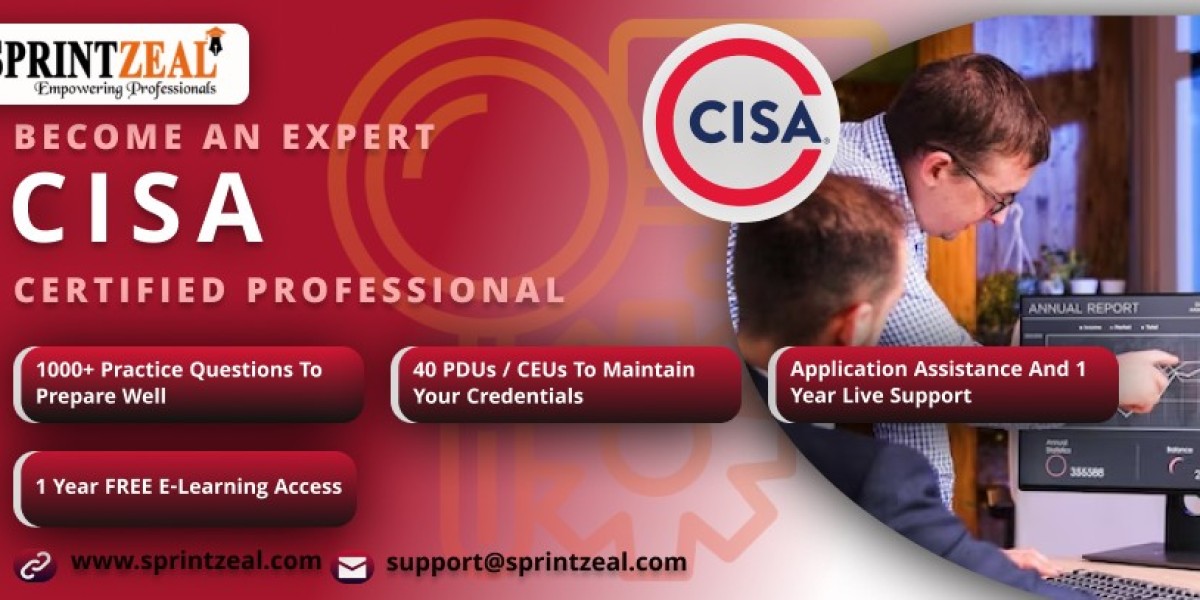The Certified Information Systems Auditor (CISA) certification, offered by the Information Systems Audit and Control Association (ISACA), is a highly respected credential in the field of information systems auditing, control, and security. Earning the CISA certification is a significant career milestone for IT auditors, security professionals, and those involved in ensuring the integrity of information systems. However, the journey to achieving this certification can be challenging. This article provides comprehensive tips and tricks to help you navigate the CISA course and pass the exam with confidence.
Understanding the CISA Certification
Before diving into preparation strategies, it’s crucial to understand what the CISA certification entails. The CISA exam tests your knowledge across five domains:
- Information System Auditing Process: Understanding how to provide audit services in accordance with IT audit standards.
- Governance and Management of IT: Ensuring that the IT governance structure aligns with organizational goals and strategies.
- Information Systems Acquisition, Development, and Implementation: Evaluating the practices for the acquisition, development, testing, and implementation of information systems.
- Information Systems Operations, Maintenance, and Service Management: Understanding how IT service management frameworks support the operations and maintenance of information systems.
- Protection of Information Assets: Ensuring that an organization’s information assets are secure and protected.
Preparation Tips for the CISA Exam
1. Familiarize Yourself with the Exam Content Outline
The first step in preparing for the CISA exam is to thoroughly understand the exam content outline provided by ISACA. This outline details the domains and the specific tasks and knowledge statements within each domain. By reviewing this document, you can ensure that your study efforts are focused on the areas that will be tested.
2. Create a Study Plan
A well-structured study plan is essential for effective preparation. Break down the content into manageable sections and allocate time to each domain based on your familiarity and comfort level with the topics. Ensure that your study plan is realistic and allows time for review and practice exams.
3. Use Official ISACA Study Materials
ISACA offers various study materials, including the CISA Review Manual and the CISA Review Questions, Answers & Explanations Manual. These resources are tailored to the exam content and provide a comprehensive overview of the material. The review manual is particularly useful for in-depth understanding, while the Q&A manual helps in practicing and testing your knowledge.
4. Supplement with Additional Resources
While the official materials are essential, supplementing them with additional resources can provide different perspectives and explanations. Consider using third-party books, online courses, and video tutorials. Some popular options include books by authors such as Hemang Doshi and David Cannon, as well as online courses on platforms like Udemy and LinkedIn Learning.
5. Join a Study Group
Joining a study group can be highly beneficial. Study groups provide an opportunity to discuss complex topics, share study materials, and support each other through the preparation process. You can find study groups on social media platforms, ISACA chapters, and online forums.
6. Take Practice Exams
Practice exams are crucial for understanding the exam format and identifying areas where you need improvement. ISACA offers practice exams that simulate the actual test environment. Take these practice exams under timed conditions to get used to the pace of the real exam. After completing each practice exam, review your answers and understand the rationale behind each question.
7. Focus on Weak Areas
Identify your weak areas by reviewing your performance in practice exams and quizzes. Spend extra time studying these topics to ensure you have a thorough understanding. Revisiting these areas multiple times can help reinforce your knowledge and boost your confidence.
8. Utilize Flashcards
Flashcards are a great tool for memorizing key concepts, definitions, and processes. You can create your own flashcards or use digital flashcard apps such as Anki or Quizlet. Regularly reviewing flashcards can help reinforce your memory and ensure you retain important information.
9. Understand the Question Formats
CISA exam questions are often scenario-based and require critical thinking and analysis. Familiarize yourself with the different types of questions, such as multiple-choice, true/false, and scenario-based questions. Practice answering these questions to improve your ability to think critically and apply your knowledge in different contexts.
10. Stay Updated with Current Trends
The field of information systems auditing and security is constantly evolving. Stay updated with current trends, emerging technologies, and changes in regulations and standards. Following industry news, participating in webinars, and reading relevant articles can help you stay informed and enhance your understanding of the field.
Exam Day Tips
1. Get a Good Night’s Sleep
A well-rested mind is crucial for optimal performance. Ensure you get a good night’s sleep before the exam day to be alert and focused during the test.
2. Eat a Healthy Breakfast
On the day of the exam, eat a healthy breakfast to fuel your brain and maintain your energy levels. Avoid heavy or sugary foods that might make you feel sluggish.
3. Arrive Early
Plan to arrive at the exam center early to avoid any last-minute stress. This will give you time to relax, get accustomed to the environment, and complete any necessary check-in procedures.
4. Read Questions Carefully
During the exam, read each question carefully and ensure you understand what is being asked before selecting your answer. Pay attention to keywords and phrases that indicate specific requirements or conditions.
5. Manage Your Time
The CISA exam consists of 150 questions to be completed in four hours. Manage your time effectively by pacing yourself and ensuring you have enough time to answer all questions. If you encounter a difficult question, move on and return to it later if time permits.
6. Stay Calm and Focused
It’s natural to feel anxious during the exam, but staying calm and focused is essential. Take deep breaths if you feel overwhelmed and remind yourself that you have prepared thoroughly.
Post-Exam Strategies
1. Review Your Performance
After completing the exam, take some time to reflect on your performance. Identify areas where you felt confident and areas where you struggled. This reflection can help you in future exams or certifications.
2. Continue Learning
Passing the CISA exam is a significant achievement, but learning should not stop there. Continue to stay updated with industry developments, pursue further certifications, and seek opportunities for professional growth and development.
3. Network with Professionals
Join ISACA and other professional organizations to network with other professionals in the field. Attend conferences, workshops, and seminars to expand your knowledge and connect with experts.
Conclusion
Earning the CISA certification is a rewarding accomplishment that can open doors to numerous career opportunities in the field of information systems auditing and security. By following these tips and tricks, you can effectively prepare for the CISA exam and increase your chances of success. Remember, consistent effort, thorough understanding, and strategic preparation are key to cracking the CISA course. Good luck on your journey to becoming a Certified Information Systems Auditor!







